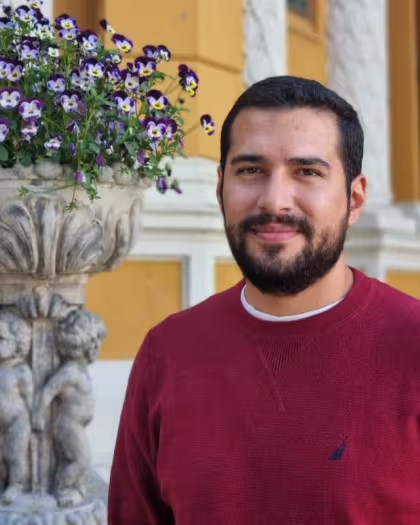Francisco Orozco-Meléndez
Position
PhD Candidate
Affiliation
Research
I am a PhD Research Fellow with an academic background in Environmental Sciences and Geography. I am interested in how science and other forms of knowledge are coproduced and deployed to address complex problems.
I have researched various environmental problems, including transitions to agroecology, environmental risk governance, climate change adaptation and grassroots innovations. My research’s conductive thread across these very diverse problems is the contact zone between scientific and “non-scientific” knowledge and practices. I look at how science and other forms of knowledge are integrated and excluded from each other in ecologies of knowledge and how they can (or cannot) improve sustainability and environmental justice. Theoretically, I explore these problems through frameworks like Political Ecology and Science and Technology Studies.
My PhD research project analyzes ethnographic observations of EU-funded research projects aiming to co-create knowledge with diverse communities to address complex environmental problems. Broadly speaking, I study what kinds of power dynamics shape the unfolding of collaborative research projects and to what extent they can be addressed by methodological choices. As an example of a relation of power, I am particularly interested in understanding how local or traditional knowledge is incorporated into the making of science and what the implications of this integration are for local practices.
Outreach
Conference paper: How do different traditions of extended science address power relations and dynamics? Workshop 1: Co-Producing Knowledge for Sustainability: Risks and New Avenues. NESS2024 (The 16th NESS - Nordic Environmental Social Science Conference), 05.06.2024
Publications
2024
- Ramírez, M. Isabel; Špirić, Jovanka; Orozco-Meléndez, Francisco et al. (2024). Sustainability of the community model of avocado production in the Monarch Butterfly Biosphere Reserve, Michoacán, México. (external link)
- Orozco-Meléndez, Francisco; Paneque-Gálvez, Jaime; Kovacic, Zora (2024). Problematizing post-normal science in the Global South. (external link)
See a complete overview of publications in Cristin.
Orozco-Meléndez, F., Paneque-Gálvez, J., & Kovacic, Z. (2024). Problematizing post-normal science in the Global South. Environmental Science & Policy, 161, 103867.
Ramírez, M. I., Špirić, J., Orozco-Meléndez, F., & Merlo-Reyes, A. (2024). Sustainability of the community model of avocado production in the Monarch Butterfly Biosphere Reserve, Michoacán, México. GeoJournal, 89(5), 189.
Orozco-Meléndez, J. F., & Paneque-Gálvez, J. (2023). Co-producing uncomfortable, transdisciplinary, actionable knowledges against the corporate food regime through critical science approaches. Environment, Development andSustainability, 1-29.
Orozco-Meléndez, J. F., & Paneque-Gálvez, J. (2022). A role for grassroots innovation toward agroecological transitions in the Global South? Evidence from Mexico. Ecological Economics, 201, 107582.


